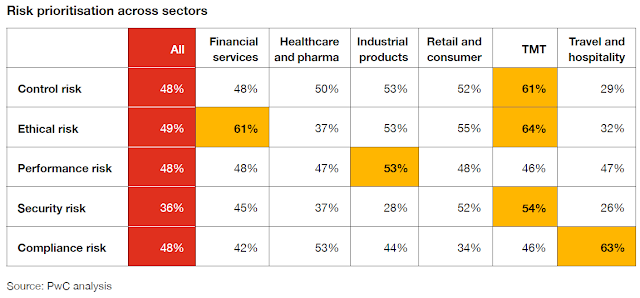
Amidst the global pandemic, India has noted the highest increase in the use of Artificial Intelligence (AI) as compared to major economies -- the US, UK and Japan), according to a global study by PwC India.
94 % of the over 200 chief executives in India surveyed said
they’ve either adopted or are planning to implement AI in their
companies, said the PwC report. Enterprises are no w more aware than earlier that AI is no longer a ‘nice to have’ technology but a 'must have', the report said.
Indian organisations are firm in their resolve to combat the challenges of the pandemic, with the manufacturing sector reconfiguring traditional practices to automate value chain processes and the Government engaging with technology firms to solve problems in the new normal (e.g. contact tracing, contactless thermal screening).
Similarly, universities, start-ups and the healthcare sector have developed AI-powered diagnostic guidance systems to help patients and models to predict the spread of the virus.
While Indian businesses still lag behind their global counterparts when it comes to scaling up AI across the organisation (5% in India vs 25% globally), India has a much higher proportion of firms (46%) with implementation in some business functions compared to the global average (28%). Significantly, more Indian enterprises are considering the use of AI (24%) compared to the global average (15%), which indicates rapid acceleration in the adoption of AI in India post the COVID-19 pandemic.
The increased adoption of AI can be attributed to the following factors -
- Post COVID-19, AI-enabled use cases like contactless selling and delivery have gained traction due to changes in buying behaviour.
- As organisations are reopening their manufacturing and office locations, AI-enabled tools are helping them enforce best practices from a health and safety perspective.
- The remote workforce is relying more on AI-enabled digital assistants to do their work without loss of productivity.
- As past knowledge and experience may fail to provide the right insights in these times of disruption, organisations are increasingly making decisions based on current data using AI-enabled predictive and prescriptive tools.
- To reduce cost of doing business, combat disruption and become future ready, organisations are adopting AI-based digital twins and synthetic data. This is also enabling them to build resilient ecosystems (e.g. supply chain and operations).

While the survey for India was conducted between August and September, globally it was conducted among 670 high ranking officials in September-October. The study said India witnessed the highest increase in AI use compared to major economies like Britain, Japan and the US, with over 70 per cent of Indian organisations having implemented AI in some functional areas in 2020 as compared to around 62 per cent last year. Also, over 90 per cent companies are implementing or planning to invest in AI solutions to address current business concerns, the survey said.










 IndianWeb2.com is an independent digital media platform for business, entrepreneurship, science, technology, startups, gadgets and climate change news & reviews.
IndianWeb2.com is an independent digital media platform for business, entrepreneurship, science, technology, startups, gadgets and climate change news & reviews.
ليست هناك تعليقات
إرسال تعليق